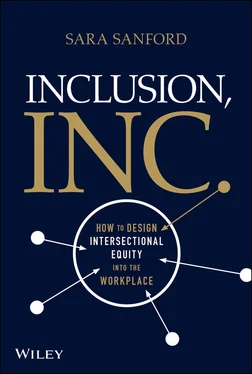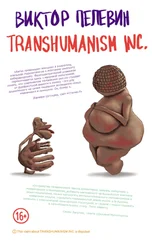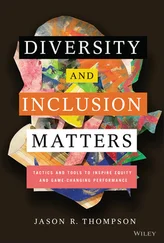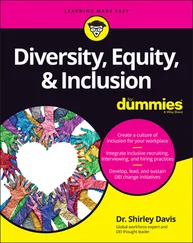Refers to individuals who experience different neurological functioning than the majority of the population. Neurodivergence may present as autism, attention deficit disorder, dyslexia, dyspraxia, Tourette syndrome, or in a number of other forms.
Why is the term “underestimated,” rather than “underrepresented,” used to refer to individuals and groups that experience bias in the workplace?
In 2015, Arlan Hamilton founded the Los Angeles–based venture capital firm, Backstage Capital, to invest in “underestimated founders,” including founders of color, women, and those who identify as LGBTQ. She also used the term “underestimated” in the title of her book, It's About Damn Time: How to Turn Being Underestimated into Your Greatest Advantage .
I wanted to adopt this term because in many cases, I believe it is more accurate than “underrepresented.” For example, “underrepresented” is not accurate when women make up over half of a group. Although they may not be underrepresented , they remain underestimated .
When you see the term “underestimated” throughout this book, I am using it to refer to groups that have historically experienced systemic bias toward a facet of their identity, such as race, gender, age, nationality, disability status, or other characteristic that is not considered the “default.” I think this term better reflects the untapped potential of these groups.
I still use the term “underrepresented” occasionally, when it is a contextually accurate descriptor of the group or individuals being discussed.
1 1.John Eligon, “A Debate Over Identity and Race Asks, Are African-Americans ‘Black’ or ‘black’?” New York Times, June 26, 2020, https://www.nytimes.com/2020/06/26/us/black-african-american-style-debate.html.
PART 1 Equity—It's Not Personal, It's Systemic
CHAPTER 1 Beyond Good Intentions
I thought 2016 was going to be a year for the underdogs. The Cubs were having their moment. It had been 108 years since they had won a World Series.
Yes, Cleveland had home field advantage. Yes, the Cubs were coming back from a 3–1 deficit, and only five teams in history had come back from that far behind to win. But when I deplaned in O'Hare, I believed the fanaticism surrounding me could beat any odds. I hadn't felt that kind of energy since Seattle's “Refuse to Lose” euphoria in '95.
I wasn't in town specifically for the Series, but I came from a baseball-loving family, and my parents had Chicago roots, so I was going to soak it up while I had the chance. Everywhere I went, I was seeing either Cubs signs or Hillary signs. #ImWithHer banners peeked out from under End the Curse! flags. All around, history seemed to be in the making.
I was in Chicago for work, and at the time, I had what I thought was a corporate do-gooder's dream job, overseeing DEI programming for a large financial company. I had spent the first part of my career advocating for equity from the other side, either in nonprofits and international NGOs, or through the lens of public policy. I had seen the limits of working on systemic problems from the outside, and I wanted to drive change from within. So, I had made the leap to the financial sector, determined to diversify the original old boys' club.
At the time, I felt optimistic. My employer had invested both time and budget. Employees, including executives, had attended trainings. We made sure our website didn't feature only stock photos of white men, and we ramped up our recruiting efforts to diversify our candidate base for job openings.
We had also created affinity groups for people of color and women, to provide a sense of community and opportunities for networking. To support our women's affinity group, we decided to invite a dozen members to join our executive team at a major financial services conference in Chicago. They would have an opportunity to get to know our executives over an intimate dinner and learn how committed our leadership team was to our diversity initiatives.
The dinner fell on the seventh game of the Series. I caught the top half of the first inning in the hotel lobby before we all left together. At the restaurant, a mainly Black waitstaff showed us to our private dining room. Pseudo castle doors separated us from the rest of the restaurant. The waiters gripped the iron door handles with both hands, braced themselves, and heaved backward to unseal them and haul them open.
We had our own décor—mock Medieval. I imagined the instructions the waitstaff had probably been given to provide us with “exceptional” service in this finance-friendly steakhouse that resembled so many others.
For me, the dinner was a means to an end. I needed to see that our leadership team understood the promise of diversity initiatives as a business imperative. I wanted management to genuinely believe supporting inclusion was a good call.
Those hurdles had now been cleared. Our affinity group had made it to the castle. Around us hung wall art in powerful frames: out-of-period noblemen in braided coats on rearing steeds, both species puffing out exaggerated chests. These were no rough-shod ponies of the Wild West; flaxen manes cascaded over their elegantly rounded shoulders. Hooves glistened. These were proper equine trophies, symbols of their riders' net worth.
“Have you decided on your order?” A waiter interrupted my thoughts.
“The salmon, please. Thank you.”
As he left the room, I overheard a snippet of the Cubs game broadcast in the restaurant. Bottom of the fourth. I couldn't hear who was ahead.
I was seated between the VP of Business Development and my boss, a woman I looked up to and had learned from. She was one of few female leaders in the industry. Glancing around the table, I felt a brief sense of pride. The women from our affinity group seated with the executive team made this the most gender-balanced financial dinner I had attended.
I had gotten to know one woman at the table a little better during the conference. I'll call her Irene. She had confided to me that she had waited for decades to launch her own career in finance because she felt that, as a woman, she wouldn't have been taken seriously until a few years ago. I had assured her that she was in the right place, that our affinity networks were created with her in mind.
As the night went on, I lost track of how long we had been there. I excused myself to use the restroom. As I pushed open the heavy door to reenter the main restaurant, I saw there were no guests left. Tables had been wiped and chairs were stacked against the walls. I cringed. The waitstaff were patiently standing by the walls, hands folded over their aprons, waiting for us. We were already an hour over our time. We were the customers I had dreaded in a previous life. I apologized and said I'd try to get our group to wrap it up.
The kitchen radio blasted the game. They were headed into extra innings.
When I returned to our room, I told the group that we were the only ones keeping the place open and suggested we take the party back to the hotel bar. But the conversations carried on. After another 20 minutes, one of the Black waiters slipped in gingerly and asked if everyone was happy with their evening before they wrapped up for the night. He was ignored. He tried again. “I'm so sorry to put an end to what looks like such a fun night, but we are going to have to be closing up soon.”
Irene cut him off. “Oh, honey, we pay your bills, so we'll be leaving when we're leaving.”
Our server nodded and retreated. As the door was slowly closing, but still partially open, Irene exclaimed loudly, to the whole room, as if sharing a joke she needed everyone to hear the setup for, “You know what I miss? Back in my day , I could have called him ‘boy’ and no one would have had a problem with it. Back in my day , I could have had him fired for speaking to a white woman that way.”
Читать дальше












